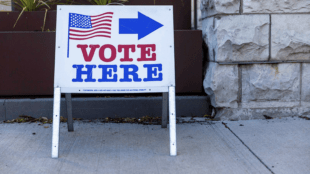The Case for Making Election Day a Federal Holiday
(Source) Although voting is the centerpiece of our democratic process, it is not a right that all Americans exercise. According to a Pew Research Center study of fifty countries, the United States ranks around the middle in turnout in national elections among people of voting age. There are many proposed legislative solutions to increasing voter turnout, but among the most bold is making Election Day a federal holiday. The history of Election Day is actually one of convivence. The first Tuesday after the first Monday in November was chosen as the date for federal elections back in the nineteenth century in order to facilitate voting. November occurred after the harvest but before the worst of the winter storms, and Tuesday meant that people did not have to vote on Sundays or Wednesdays, reserved for church and market day respectively. However, as modern life has evolved, the [read more]










